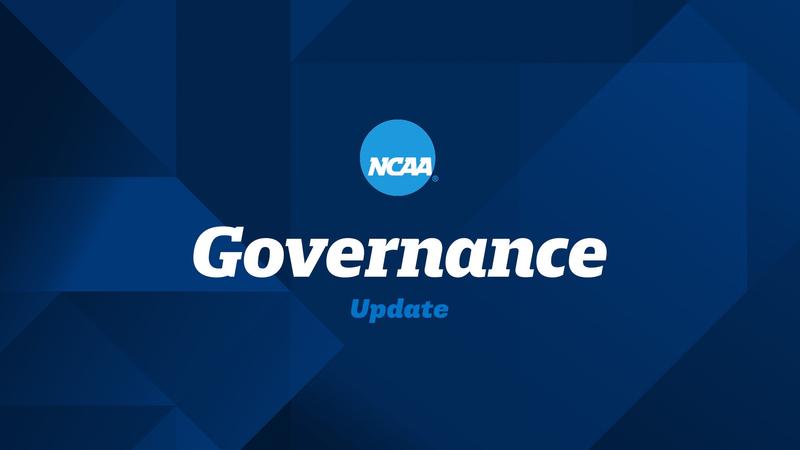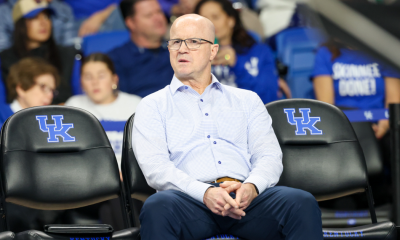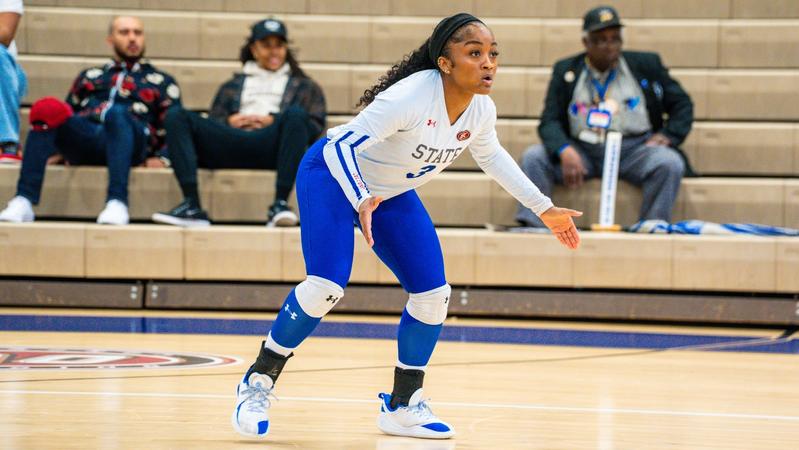Sports
KSA to increase oversight of gambling sponsorships in sports


The Netherlands Gambling Authority (KSA) has announced it will intensify its oversight of the forthcoming ban on sports sponsorships by gambling operators, as the final phase of the country’s advertising restrictions comes into effect on 1 July.


The regulatory body made the announcement via a formal letter addressed to all licensed online gambling providers operating in the Dutch market.
The upcoming enforcement marks the end of a transitional period that began on 1 July, 2023.
At that time, the Netherlands introduced a nationwide ban on untargeted advertising for online gambling.
That initial legislation prohibited gambling advertisements in publicly accessible locations, such as billboards, television, and radio, as part of the government’s broader initiative to shield vulnerable individuals from the influence of gambling promotion.
Recognising the complexity of pre-existing contractual obligations, particularly in the sports sector, the Dutch government granted a two-year grace period for sports sponsorship agreements already in place prior to the 2023 ban.
That transitional arrangement is now set to expire, making all forms of sports-related gambling sponsorship illegal from 1 July.
Effective on that date, gambling companies will be prohibited from engaging in a range of sponsorship and promotional activities.
This includes sponsoring individual athletes or entire teams, placing gambling brand logos on sports jerseys, equipment, or kits, and acquiring stadium naming rights involving gambling company names.
Additionally, gambling operators will be barred from forming official partnerships with clubs and competitions, as well as from distributing promotional merchandise or offering prize giveaways linked to sports entities.
The KSA has signalled it will actively monitor compliance throughout the summer, and will initiate immediate enforcement actions against any operator found in violation of the sponsorship ban.
Other industry-led reforms in the works
The regulatory authority also confirmed it is currently engaged in consultations with industry associations to address any remaining questions or uncertainties about the scope and implementation of the new rules.
According to KSA chairman Michel Groothuizen, the regulator is committed to ensuring that gambling operators do not exploit legal loopholes or devise alternative strategies to bypass the intended effects of the law.
He emphasised that similar bans in other countries have prompted some gambling companies to adopt creative methods to continue advertising through indirect or surrogate means.
Groothuizen stated that such circumvention will not be tolerated in the Netherlands.
He underscored that the primary objective of the legislation is to safeguard public health by minimising gambling exposure, especially among vulnerable populations.
Groothuizen reiterated the KSA’s commitment to strict enforcement in line with that goal.
The latest restrictions are a continuation of the Dutch government’s broader efforts to regulate the gambling market following the liberalisation of online gambling in October 2021.
Since that time, authorities have taken several steps to balance market access for licensed operators with robust consumer protections.
The advertising ban is one of the key tools being employed to limit the normalisation of gambling, particularly among younger demographics.
Licensed gambling providers in the Netherlands are now expected to revise their marketing strategies and comply fully with the upcoming restrictions.
Failure to adhere to the new rules may result in sanctions, including fines or potential revocation of licences, as the KSA asserts its regulatory authority during this crucial phase of enforcement.
Sports
Women’s Empowerment Spotlight | Gwen Wolkow

BUIES CREEK, N.C. – Gwen Wolkow’s journey to Campbell University certainly was a family affair. The daughter of two collegiate athletes and oldest of three athletic siblings, Campbell’s All-CAA outside hitter understood from an early age the sacrifices required not only to earn a college scholarship, but to also thrive once she arrived in Buies Creek.
Oh, and how did she thrive!
After earning Big South all-freshman team honors and helping lead her team to a regular season title, she was a mainstay on the roster that three years later captured its first CAA tournament championship.
Wolkow was a first-team All-CAA selection last fall when the Camels reeled off a 23-7 overall record and a 13-3 mark in league play before winning the conference title. Campbell made its second trip to the NCAA volleyball championship in five years and squared off against eventual national champion Texas A&M in the first round.
In the classroom, Gwen is a four-time CAA Commissioner’s honor roll student while preparing for a career in law enforcement as a criminal justice/pre-law major.
“I’m really grateful for my scholarship,” said Wolkow. “Not a lot of people have that opportunity of being able to play at the Division I level like I wanted to. It also helps my family a lot because college is expensive.”
The generosity of Fighting Camel fans, alumni, family, and friends truly makes a difference in the lives of student-athletes at Campbell University. Through the Women’s Empowerment Fund, the Fighting Camel Club’s goal is to make that experience even better, specifically for our female student-athletes. To join the Fighting Camel Club, click here.
A family of athletes
Gwen’s parents are graduates of Western Michigan University, where her father Nathan (Nate) was a defensive lineman on the football team and mother Kate competed for the Broncos volleyball team.
Growing up in suburban Chicago (Downers Grove), Gwen started playing volleyball while she was in the third grade. By the time she reached high school, she knew she wanted to compete on the collegiate level. Having parents who had competed at the highest level of collegiate athletics provided an insight into what was required of an aspiring Division I athlete.
“We had conversations and my parents asked, ‘is this something you really want to do? We’re going to put all this money into training and traveling to tournaments, is it something that you want to put yourself through seven days a week?'” Gwen recalled.
She joined the Sports Performance volleyball club and helped her team win an AAU U15 national championship in 2019 and finish as U17 national runner-up two years later.
“With my club, we played basically every day of the week,” said Gwen. “My club was all about discipline, following the rules and (the commitment) can be really tough on you. But it makes you into the player you’re going to be in the future. If you want to (play) volleyball in college, it really helps.”
Traveling to Wisconsin, Kentucky, Florida and the Dominican Republic with Sports Performance helped prepare Gwen for a collegiate travel schedule against CAA opponents located from Boston, Mass., to Charleston, S.C.
In addition to Gwen’s commitments with Downers Grove North High School and Sports Performance, the Wolkow family also juggled the schedules of her younger brother George, who was pursuing a baseball career and younger sister Grace, who also competes in volleyball.
“On Sunday nights, we’d sit down for dinner at home, talk about what we’re doing throughout the week, where we’re going,” Gwen recalled. “My parents would switch off who they were going with, especially since my younger sister got into sports. They did everything they could to support us in everything we wanted to do. They put us in the highest level we could go and let us run with it.”
George grew to be a 6-foot-7, 240-pound outfielder and was selected by the Chicago White Sox in the seventh round of the 2023 Major League Baseball amateur draft. Gwen was able to see him play during the 2025 season with the Kannapolis Cannon Ballers and on the road against the Fayetteville Woodpeckers.
Grace is in her freshman year of high school with a goal of a career in medicine.
“All of us from a young age knew what we wanted to do,” said Gwen. “My brother from middle school knew that he wanted to play major league baseball. My sister talks about Stanford because she wants a medical degree. We all have big dreams, big goals.”
As the oldest child in the Wolkow family, Gwen has enjoyed watching her siblings grow into the persons they’ve become.
“My brother graduated high school a year early, and not many people have the opportunity to be drafted and do what he’s doing,” said Gwen. “I’m really proud of him. He’s always working. When (the family traveled) to the NCAA tournament, he was working out in the hotel gym. He doesn’t take any days off.”
Gwen has been away from home for much of the last four years competing and pursuing her degree at Campbell and has been impressed by Grace’s improvement.
“It’s crazy to see that growth in my younger sister, she’s six years younger than me, and she gets better every year,” said Gwen. “When we were at my last game, she looked at me, started crying and said, ‘I’m never going to see you play again.’ From a big sister point of view, you really have that effect on your younger siblings.”
Why Campbell?
Like many students who choose to attend Campbell, Wolkow was attracted to a smaller campus with smaller classes that provided more individual attention. She also knew that she wanted to go to a school that was in a place that did not have to endure the bitter cold winter of her hometown in the Great Lakes region.
While attending Campbell’s volleyball camp the summer after her freshman year of high school, Gwen met future teammates Melody Paige and Claranne Fechter.
“At camp, I really enjoyed the girls on the team; it really matters how well you get along with the people there,” said Gwen. “I like the smaller school aspect, smaller classes, I can walk from my apartment to class.”
The turnaround
After a four-year build to becoming one of the best volleyball programs in the Big South, then the CAA, graduation losses and injuries played a large part in Campbell struggling to an uncharacteristic losing season (6-22 overall, 4-14 CAA) in 2024.
Wolkow and her teammates were determined that 2025 would be different. Despite being picked 10th in the preseason CAA poll, Campbell posted a 23-7 overall record, 13-3 mark in the CAA. The 17-win improvement from the previous year was tops among all Division I volleyball programs. All four losses outside of conference play came at the hands of “Power 4” members.
“We just thought, it’s not going to happen again,” said Gwen. “We focused on team chemistry and building our culture back up. A lot of people worked really hard, and that hard work paid off. After being picked second to last in the preseason poll we were definitely angry and then losing two games to Charleston (Oct. 3-4), we really wanted to prove ourselves.”
In the CAA Championship at Towson, Md., Campbell rallied from 2-1 set deficits against Stony Brook in the semifinals and Hofstra in the final to claim the title. In fact, Campbell held off three match points against the Pride, recovering from a 24-21 deficit in the fourth set, to win 26-24. The Camels then won the fifth set 15-12 to punch their ticket to the NCAAs.
“It was a great way to end your college career,” said Wolkow. “Yes, we lost to Texas A&M but being in that environment and around those fans is something that a lot of people don’t get to do. We’re all really grateful for that experience.”
Off the court
Despite a demanding athletic and academic schedule, Gwen found the time to enjoy her collegiate experience in a number of ways – including one that is certainly uncommon for many students.
During breaks in her freshman and sophomore year, she attended Maui Surfer Girls – a camp in Hawaii for adult women who want to learn to surf.
“I had never surfed before, but I loved it,” she said. “Everyone was so involved and included. It was about opening up, getting to know each other, building relationships. A lot of people there were beginners. As an athlete, it was nice because I caught on really fast. Being able to stand up on a surfboard and ride a wave is really exhilarating.”
Last summer, Wolkow completed an internship with her local police department. That experience helped her decide on a career in law enforcement rather than pursuing law school.
“In high school, I thought I’d go to law school, but I became more intrigued about the law enforcement aspect. My internship confirmed that.”
After graduating in May, Wolkow plans to join a police department, work for two years then apply to the FBI or stay in the force and eventually join a SWAT unit.
“I definitely don’t want to work at a desk, I want to be out and about,” said Wolkow. “My grandpa was in the Army. It’s in my blood, I guess.”
Gwen Wolkow’s collegiate experience has provided her with lifelong friendships and memories, not to mention athletic and academic honors, plus three team trophies and a trip to the postseason.
Her advice to someone just starting their college experience?
“The hard days building up to finding out where you want to go to college are worth it. You have those hardships, but if you can get through them, you’re on your way to success in anything,” she said. “Be open to change. Coming to college there’s a lot of changes you have to get used to. Every year the seniors on this team have done a good job involving the freshmen, including them, getting to know them. Each of the seniors is really close with at least one of the freshmen. To have that kind of relationship, once that freshman experiences it, then they can do it when they are seniors.”
Sports
Where Wisconsin Badgers volleyball stands after winter transfer window
Jan. 8, 2026, 5:22 a.m. CT
MADISON – The whiteboard in Kelly Sheffield’s office in Kellner Hall had 14 names on it.
Seven of the names in the upper-left corner were returning players from the 2025 Final Four team. The other seven are newcomers in 2026.
They add up to form a group that still has some remaining positional needs going into the spring semester, but it’s also a group that has Sheffield excited as he looks ahead to his 14th season as Wisconsin volleyball coach in 2026.
Sports
Track & Field Opens Home Slate with Gamecock Opener – University of South Carolina Athletics

COLUMBIA, S.C. (Jan. 8, 2026) – South Carolina Track & Field is set to host the first meet of the 2026 calendar year with the Gamecock Opener on Saturday at the Carolina Indoor Track & Field Complex.
Follow the Meet
Live results for the 2026 Gamecock Opener can be found by clicking here. Fans can also follow along with updates on X (Twitter) by following @GamecockTrack.
Know Before You Go
Carolina Indoor Track & Field Complex does have a CLEAR BAG POLICY that will be in effect. Learn everything you need to know about the Clear Bag Policy by clicking here. There is also a WATER BOTTLE POLICY for all patrons and that is: one clear, plastic disposable water bottle is permitted. No hard, non-clear refillable bottles are allowed inside the facility.
Parking
For the 2026 Gamecock Opener, spectators will be able to utilize the Athletics Village Parking Garage for $10 per car, with no re-entry. There will also be city metered parking surrounding the complex that will also be made available through the ParkMobile app.
Ticket Information
There is a $10 fee for any adults wishing to attend the meet. Children that are 17 and under gain entry for $5, while kids 2 and under are free. Students/faculty/staff get in free with their valid Carolina Card identification. Please note that the Carolina Indoor Track & Field Complex is a CASH ONLY facility.
Meet Information
The Gamecock Opener will kick off at 10 a.m. with the men’s high jump, while the first track event will be the men’s 60 meter prelims at 11:35 a.m. There is a full slate of events scheduled, with the final event being the 4x400m relay for the women at 5:05 p.m. Doors are set to open at 9 a.m. A total of 12 teams will compete in this weekend’s home opener, including in-state opponents South Carolina State and Winthrop.
Gamecocks at Home
South Carolina has 44 athletes competing in the home opener, spread out among 28 potential events. The Gamecocks last competed at Dec. 5 and Dec. 6, 2025 at both the Clemson Opener and the Sharon Colyear-Danville Opener. At Clemson, South Carolina secured 11 wins and took down two program records. Meanwhile in Boston, the Gamecocks dropped two more program records to kick start the season.
There will be 18 Gamecocks making their season debuts on Saturday, including eight who will be making their Gamecock debuts. On the men’s side, Robert Stitts Jr. will lace up the spikes for the first time for Carolina on Saturday. For the women, Jalee Brown, Jasmine Cook, Cohren Corbin, Akala Garrett, Bella Leonard, Jathiyah Muhammad and Kymora-Lee Williams will don the Garnet & Black for the first time this weekend.
Sports
Women’s volleyball rules committees propose changes to center line faults

The NCAA women’s volleyball rules committees recommended a player’s foot completely crossing the center line be ruled a fault, beginning with the 2026 season.
Additionally, coaches could challenge whether an opponent’s foot completely crossed the center line. Officials would also be able to look at possible net faults while reviewing a challenge as to whether a player’s foot completely crossed the center line.
The Division I Women’s Volleyball Playing Rules Subcommittee and the Division II and Division III Women’s Volleyball Rules Committee met in Indianapolis this week to propose rules changes in the sport.
All rule recommendations must be approved through the governance structure before becoming official. The Division II and Division III Playing Rules Oversight Panel will discuss women’s volleyball rules recommendations Feb. 12. The Division I Women’s Volleyball Oversight Committee will review proposals during a meeting Feb. 16-18.
Both committees wanted to bring NCAA volleyball more in line with the international center line rule.
Currently, it is not a fault for a player’s foot to completely cross the center line unless the player causes interference or creates a safety hazard. Center line faults currently may not be challenged.
“It’s always about safety when you talk about the center line,” said Keylor Chan, chair of the Division I rules subcommittee and women’s volleyball coach at Samford. “I think, through the course of modern volleyball, this rule has gone back and forth through the years. The hardest part was there was some subjectivity to it. We are trying to take the subjectivity out for the referees and for the safety of our athletes.”
Bench protocols
Both rules groups proposed that teams switch benches after the completion of the second set. Also, the rules committees are recommending that after the coin flip for the fifth set – where a team can choose to serve, receive or which side to compete on – the teams remain on their sides of the net the entire set.
Rationale for making the change is to aid pace of play and limit the delays of teams changing benches.
Currently, teams switch benches after each set, and the teams also switch benches in the fifth set when the first team reaches 8 points.
“The time it takes to play a match is something that we are conscious of,” Chan said. “This helps with moving the sport forward in a positive direction.”
DII/III substitutions
The Division II and Division III Women’s Volleyball Rules Committee proposed increasing the substitutions allowed per set to 18. Currently, teams can make 15 substitutions per set.
“With the rosters increasing over the past few years, we felt like this was a good move to give our student-athletes more opportunities to participate,” said Julia Rowland, chair of the committee and deputy director of athletics and senior woman administrator at Coker. “It gives our coaches more opportunities to get creative with their lineups. The committee felt we should keep these two divisions aligned on the number of substitutions.”
Experimental rule
Both committees approved an experimental rule for conference games to allow the electronic transmission of live video to the bench area for coaching purposes only.
Other rules recommendations approved by both committees:
- Players on the serving team would not be allowed to raise their hands above their heads during the serve until the ball crosses the net.
- Challenges would not be permitted once a timeout is initiated.
- When making a video review challenge, coaches would form a “C” with their hands instead of presenting a card to indicate requesting a review.
- Jewelry could be worn above the chin only. There would not be limitations on the size of the jewelry.
- Misconduct sanctions would remain for the entire match and not reset after a set is completed. Sanctions for procedural reasons (delays) would reset each set.
- Players could go around the net pole to pursue a ball and play it back to their side. This action would be allowed for a ball that has crossed the net plane to the opponent’s free zone over or outside the antenna. There would need to be at least 2 meters of space behind the referee’s pole to use this rule. Television cameras also could not be placed between the attack lines on the side where the referee’s stand is located. Players could not go under the net to pursue the ball.
- Officials could go to the statistics crew or use the Challenge Review System to address a scoring discrepancy. Coaches would not have to make a formal protest in these instances.
- Another optional timeout format would be added in which technical/media timeouts occur when a team reaches 15 points for sets 1-4, regardless of whether a team has already taken a timeout. The technical/media timeout will be a maximum of 90 seconds. A team timeout maximum time would be 75 seconds. There would not be a technical/media timeout in the fifth set.
- If a disqualified player doesn’t sit out the next match as required, the head coach and player would be required to serve a two-game suspension. If a coach who is disqualified doesn’t sit out the next match as required, the head coach would be required to serve a two-game suspension.
- Two commercial logos would be permitted on the playing surface that would be no larger than 10 feet by 10 feet. One logo could be placed at each end of the playing court located between the attack line and end line. The logos should not interfere with any court marking or boundary lines.
Sports
Four Privateers Earn Southland Cross Country All-Academic Honors

NEW ORLEANS – Four Privateers were named to the Southland Cross Country All-Academic Team which was released by the conference office on Thursday.
Mason Appleton becomes the tenth men’s selection to the Southland All-Academic Team since 2016 and earns his first nod. The senior currently holds a 3.88 GPA as a Biological Sciences major. He competed in all four meets and set three personal bests in the fall.
Appleton also went to the NCAA Regionals for the second consecutive season. He also won the Azalea City Classic in the fall.
Three women also made the All-Academic Team in Anais Sulpice, Petra Imre and Michela Papalia.
Sulpice carries a perfect 4.0 GPA while currently obtaining her Master’s in Finance. A native of France, Sulpice had a top five finish in the Azalea City Classic and finished 21st in the Southland Championships last fall.
Imre currently holds a 3.87 GPA as a Film and Theatre Arts major. The sophomore from Hungary also had a top five finish at the Azalea City Classic and finished 27th at the Southland Championships.
Papalia also finished in the top five at the Azalea City Classic. The sophomore from Italy currently holds a 3.92 GPA as a Human Performance and Health Promotion major. Papalia finished 32nd at the Southland Championships.
The trio of women boost the number of Southland All-Academic selections to 11 since 2019. The Privateers also had four members make the team in 2023, the most since joining the conference.
BLUES ON TUES. NEWSLETTER
To keep up with all athletics news at the University of New Orleans, subscribe here for our weekly newsletter.
FOLLOW US ON SOCIAL
Keep up to date with everything New Orleans Cross Country and Track & Field. Follow @PrivateersTFXC on Twitter/X, @PrivateersTFXC on Instagram, like /PrivateersTFXC on Facebook and subscribe to the UNOPrivateers YouTube channel.
Sports
Beach Volleyball Unveils 2026 Schedule

JACKSONVILLE, Fla. – North Florida Beach Volleyball unveiled its 2026 schedule on Thursday.
The slate is highlighted by a pair of home tournaments at The Cooper Beach Volleyball Complex, “The Coop”, with the DUUUVAL Duals on March 6-7 and North Florida Invite on March 20-21.
North Florida totaled a program-record 26 wins in 2025 that culminated in the program’s second-straight and second-ever appearance in the NCAA Championship after it added its second-straight and sixth total ASUN Championship title. North Florida earned a program-best No. 12 seed in the NCAA Championship after it secured the No. 16 seed in 2024.
North Florida has won 24 or more matches in each of its last five seasons.
In addition to a program-record win total, North Florida earned its highest ranking in program history at No. 14 in the final AVCA Collegiate Beach Coaches Poll in 2025. The Ospreys were ranked in each installment of the poll in 2025 for the first time in program history.
Four of North Florida’s five tournaments will be in-state. North Florida opens its season across town at the Dolphin Duals, hosted by Jacksonville, at Payne Sand Volleyball Courts at Dolphin Beach on Feb. 20-21. North Florida then heads to Tallahassee, Fla. for Florida State’s Seminole Beach Bash at the Seminole Beach Volleyball Courts on Feb. 27-28.
North Florida travels to Stanford, Calif. to compete in the Stanford Invitational at the Stanford Beach Volleyball Stadium on March 13-14.
In between home tournaments, North Florida makes the trip to Austin, Texas to compete in the Texas Invitational at Wright-Whitaker Sports Complex on March 27-28. North Florida heads Boca Raton, Fla. for the FAU Beach Invitational on April 10-11.
North Florida closes the regular season at TCU”s Fight In The Fort at the TCU Beach Volleyball Courts on April 17-18.
North Florida looks to defend its back-to-back ASUN Championship titles at the 2026 ASUN Championship at John Hunt Park on April 22-24 and return to the 2026 NCAA Championships at Alabama’s Beach Sports & Events in Gulf Shores, Ala. on May 1-3.
-

 Rec Sports3 weeks ago
Rec Sports3 weeks agoPrinceton Area Community Foundation awards more than $1.3 million to 40 local nonprofits ⋆ Princeton, NJ local news %
-

 Sports2 weeks ago
Sports2 weeks agoBadgers news: Wisconsin lands 2nd commitment from transfer portal
-

 Rec Sports6 days ago
Rec Sports6 days agoFive Youth Sports Trends We’re Watching in 2026
-

 Sports3 weeks ago
Sports3 weeks agoIs women’s volleyball the SEC’s next big sport? How Kentucky, Texas A&M broke through
-

 Rec Sports3 weeks ago
Rec Sports3 weeks agoNBA, Global Basketball Community Unite for World Basketball Day Celebration
-
Rec Sports3 weeks ago
Inside the NWSL’s first combine: Can the league create a more robust pathway for American talent development?
-

 Sports2 weeks ago
Sports2 weeks agoKentucky VB adds an All-American honorable mention, loses Brooke Bultema to portal
-

 NIL3 weeks ago
NIL3 weeks ago$2.1 million transfer portal QB predicted to join College Football Playoff team
-

 Motorsports2 weeks ago
Motorsports2 weeks agoDr. Patrick Staropoli Lands Full-Time O’Reilly Ride with Big Machine Racing
-

 Motorsports2 weeks ago
Motorsports2 weeks agoBangShift.com IHRA Acquires Historic Memphis Motorsports Park In Millington Tennessee. Big Race Weekend’s Planned For 2026!

































